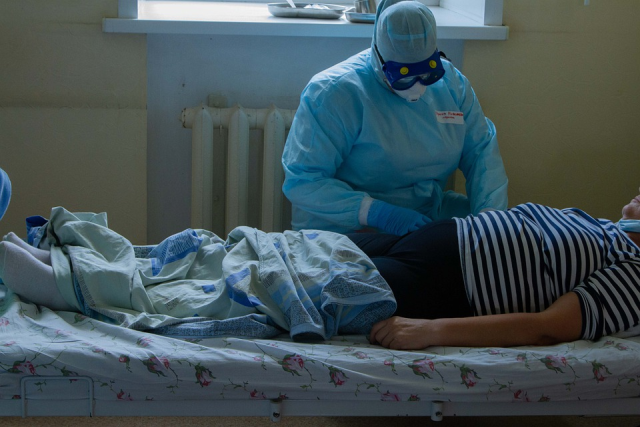Being vaccinated with at least two doses of Pfizer vaccines dramatically reduces most of the long-term symptoms individuals reported months after contracting COVID-19, a new study shows. This was determined in a new study conducted by Scientists at Bar Ilan University in Israel in which eight of the ten most-commonly reported symptoms were reported between 50 and 80% less often among individuals who received at least two doses of COVID-19 vaccine compared with those who received no doses.
The news of this study came just days after researchers at Tel Aviv University revealed that they isolated two antibodies that neutralize all known strains of COVID-19 – the Delta and the Omicron variants – with up to 95% efficiency. That breakthrough could even make Covid vaccines unnecessary.
Will you offer us a hand? Every gift, regardless of size, fuels our future.
Your critical contribution enables us to maintain our independence from shareholders or wealthy owners, allowing us to keep up reporting without bias. It means we can continue to make Jewish Business News available to everyone.
You can support us for as little as $1 via PayPal at office@jewishbusinessnews.com.
Thank you.
The new study, recently published in the Nature journal npj Vaccines, was led by Prof. Michael Edelstein, of Bar-Ilan University’s Azrieli Faculty of Medicine, in cooperation with infectious disease and IT teams at three of the Faculty’s affiliate hospitals in northern Israel: Baruch Padeh Medical Center, Ziv Medical Center and Galilee Medical Center. Paul Otiku, a PhD student at Bar-Ilan’s Azrieli Faculty, carried out most of the statistical analysis.
Nearly 3,500 adults across Israel participated in the study, carried out between July and November 2021. These individuals completed a survey available in four commonly-spoken local languages — Hebrew, Arabic, Russian and English — with a variety of questions about previous COVID-19 infection, vaccination status, and any symptoms they were experiencing.
More than half of the participants (2,447) reported no previous SARS-CoV-2 infection, while 951 were previously infected. Of those infected, 637 (67%) received at least two vaccine doses. Of the 2,447 individuals reporting no previous infection 21 (0.9%) received one dose, 1,195 (48.8%) received two doses, 744 (30.4%) received three doses, and the rest were unvaccinated (19.9%).
The researchers compared vaccinated individuals with those unvaccinated in terms of post-acute self-reported symptoms. After adjusting for factors such as age and time elapsed from infection to responding to the survey, they found that vaccination with two or more doses of the Pfizer vaccine was associated with a reduced risk of reporting the most common post-COVID symptoms. Among those in the current study’s population the most common symptoms reported — fatigue, headache, weakness of limbs, and persistent muscle pain – reduced by 62%, 50%, 62%, and 66%, respectively. Other commonly-reported symptoms, such as shortness of breath, were reduced by up to 80%.
The study contributes to scarce information to date about the impact of vaccination on long COVID. “We don’t fully understand what happens in the months and years following COVID-19 in terms of physical and mental health and wellbeing,” says the study’s lead author, Prof. Michael Edelstein, of Bar-Ilan’s Azrieli Faculty. “Because long COVID seems to affect so many people it was important to us to check whether vaccines could help alleviate the symptoms. It is becoming increasingly clear that vaccines protect not just against disease but, as the results of this study suggest, against long-term, sometimes life-changing, effects of COVID-19.”
To what extent vaccines protect against long COVID remains less clear. This study is the first in an ongoing project launched by Edelstein to track a large cohort of individuals from all sectors of Israel’s diverse society to understand the impact of the vaccines on long-term quality of life, different COVID variants, and long-COVID symptoms.
This research was funded in part by the Harvey Goodstein Foundation.




